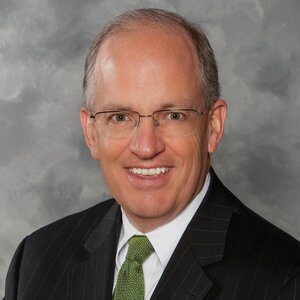
President and CEO
Context Business Lending
To get a handle on how the asset-based lending industry has traversed a tumultuous 2020 and where it is headed in 2021, ABF Journal spoke with executives from Siena Lending Group, Context Business Lending, PNC and BMO Harris in an exclusive Q&A.
The past 12 months have illustrated just how uncertain the future can be. If we rewind back to December of 2019, commercial lenders were expecting a very different year in 2020 than they ended up getting. The ongoing disruption of the COVID-19 pandemic was not on most lenders’ radars, but it completely altered the trajectory of the industry and the world at large.
Despite continued uncertainty, ABF Journal reached out to Meredith Carter, president and CEO of Context Business Lending; Miin Chen, chief operating officer of Siena Lending Group; Peter Mardaga, CEO of the asset-based lending group at PNC; and Mike Scolaro, head of asset-based lending at BMO Harris Bank to review 2020 and provide some insight into what to expect in 2021.
What is your one sentence overview of 2020 from an asset-based lending perspective?
CARTER: 2020 brought an opportunity for our industry to truly save American jobs by providing otherwise unavailable capital in situations where companies, through no fault of their own, struggled to meet payroll because of the effects of COVID-19.

Chief Operating Officer
Siena Lending Group
CHEN: It was a year of highs and lows. Increased liquidity from all the stimulus monies led to higher credit quality and the lowest utilizations that we’ve seen in a long time, coupled with low originations in the first half to high activity in the second half.
MARDAGA: Like most industries, 2020 has been an ever-changing series of events, opportunities and challenges for asset-based lending.
SCOLARO: 2020 once again demonstrated the attractiveness of the ABL product as the industry delivered, in the midst of a global pandemic, competitive financing solutions to clients throughout the entire spectrum of the economy.
COVID-19 obviously dominated all aspects of our lives this year. What was the most surprising way it affected the asset-based lending industry?
CARTER: While we miss seeing our industry colleagues in person, we think the virtual environment necessitated by COVID-19 provided opportunities for us to meet a broader base of referral partners efficiently. Our virtual environment also fast-tracked our focus on creating internal efficiencies for scale through technology.

CEO, Asset-Based Lending
PNC
CHEN: The ability for our industry to go virtual essentially overnight and adapt to a new way of business and communication was pretty extraordinary.
MARDAGA: It was incredibly striking to see the entire industry — lenders, employees, clients and third-party professionals — quickly adapt to the necessities of the moment. The year began with preparing employees to work remotely, then rapidly morphed into aiding clients both directly and through the Paycheck Protection Program. In addition, we all had to determine the best way to run our businesses with a dispersed employee base for a long period of time with the realization that the pandemic was going to persist much longer than originally thought.
SCOLARO: The ease of the transition from the office to remote work locations was quite surprising. I anticipated systems issues, workflow issues and general logistical issues. However, the BMO Harris ABL team took the transition completely in stride and over-delivered to our customers and colleagues.
What trends, COVID-19 influenced or otherwise, do you think really stood out this year and which ones do you think will continue in 2021?
CARTER: Our e-commerce borrowers did extremely well this year and we expect that trend to continue in 2021 as brick-and-mortar shopping will likely forever be impaired. We took the opportunity to launch CBL’s e-commerce platform this month, which will be solely focused on helping direct-to-consumer e-commerce industries. Because we are backed by a family office, we have the ability to step outside typical bank-imposed inventory concentration limits and offer our borrowers flexible working capital lines of capital based primarily or solely on inventory.

Head of Asset-Based Lending
BMO Harris Bank
CHEN: The one that really stood out to me was the industry’s ability to adapt to a virtual setting, and that is something that I think will carry into 2021 and beyond. Our abilities to leverage Zoom and other platforms to complete meetings both internally and externally, including field exams, was something pretty unique and relatively creative. We’ve operated virtually in the past when we’ve had bad storms up here, but that was just usually for the duration of the storm and not an extensive period as experienced with COVID. However, when we were forced into that situation, we found out that we were still able to operate and our contingency plans really worked. I don’t think we will be fully remote/virtual on our choosing in the future, but this certainly opens the doors to further discussion of some type of hybrid environment.
MARDAGA: The broader acceptance and leveraging of technology became necessary and, in particular, through parts of our industry which were previously resistant to adoption. Now there is little discussion about returning to prior ways, which will make customer interactions much more seamless and efficient. Remote working will likely also continue to be a trend in 2021 but not at the levels we see now. Ultimately, we all still need human interaction and the benefits of in-person development that an office environment provides.
SCOLARO: Several trends emerged this year: 1) The pandemic and its repercussions changed the dynamic and frequency of our discussions with clients, and our interaction became even more regular and certainly more strategic; 2) younger lenders who had never worked through a recession had one thrust upon them with unexpected rapidity and severity; 3) we all adapted to a changing workplace environment and 4) working capital contraction was significant.
What are your expectations for 2021 in terms of deal flow and business activity?
CARTER: We expect 2021 will reveal to traditional banks which of their borrowers were truly helped by PPP dollars and which the stimulus merely provided a Band-Aid for unrecoverable declines. Our expectation is that deal flow for non-bank ABL companies will be positively affected as a result of the fallen angels banks decide to let go. We are happy for the opportunity to help these temporarily unbankable companies by providing them the capital to incubate them back to health in order for them to meet traditional bank parameters once again.
CHEN: I expect a strong 2021, especially after the first quarter. However, this is also strongly dependent on what the government does between now and then with any stimulus monies.
MARDAGA: Our general expectation is that 2021 will be a much better year in terms of deal flow and economic activity. Plus, there may be a boost later in the year from pent up demand particularly from the more heavily impacted sectors of the economy. The subdued M&A market also has the potential to improve.
SCOLARO: I am anticipating a significant increase in deal flow beginning in the February to March time frame and a more gradual increase in business activity in the second half of 2021 as the vaccines lead to herd immunity and the population’s subsequent re-engagement with certain parts of the economy that have been left behind by the pandemic, primarily in the hospitality and entertainment industries.
What challenges do you expect in the new year and how is your company gearing up to handle them?
CARTER: As we seek to become the leader in “new school ABL,” we have committed significant capital to discover and implement more efficient ways to run our business through incorporating technology and to source more deals using external data sources. Being a leader in this frontier means forging a path on the road less traveled and comes with learning curves and trial and error. But we are prepared to take risks, make mistakes and learn from those mistakes in order to achieve our goal to “disrupt ABL.”
CHEN: I feel that we’ve really had a lot thrown at us in 2020 and at a pretty rapid speed that it’s really trained us to think on our toes and utilize all the resources that we have to get the job done.
MARDAGA: We recently announced a definitive agreement to acquire BBVA USA, so our team will be working through that process throughout much of 2021. As an added complexity, our team will also be transitioning to a gradual return to the office. Our employees have had to deal with many challenges during 2020 and have had to make adjustments to their personal lives to accommodate work, among other things. They will now have to make new adjustments as the situation evolves over the coming months. I worry about the personal impact that will have on our team.
SCOLARO: 2021 will be a year full of challenges. The interest rate environment is unfavorable to bank lenders, the lack of utilization is curtailing loan growth, borrowers are continuing to recover from the COVID aftershocks and employee engagement needs to remain high despite all of the obstacles put in our way.
To combat these challenges, we must remain close to our customers and actively solicit new customers all while being cognizant of rapidly shifting market conditions. Further, we need to invest in our employees. We need to reduce unnecessary tasks and complete an end-to-end transformation of the lending process to ensure we are delivering not only world class service to our clients, but a process for employees that is not rife with duplicative, inefficient and frustrating hurdles. We need to continue to listen to our employees and recognize the issues important to them and do our absolute best to help them achieve their goals.
When do you expect a “return to normal” for both the asset-based lending industry and the economy in general?
CARTER: We hope that the asset-based lending industry will never fully return to normal. Instead, we hope that a new, more efficient normal will emerge, incorporating more technology into what has been a very static industry for decades. We believe there is a lot of opportunity to bring our industry into the 21st century and CBL hopes to lead that movement.
As to the economy, it is hard to generalize, as some industries were unaffected, some benefitted, others were affected by lockdowns and other sectors are vaccine dependent. We don’t think the world will ever fully return to the pre-COVID lifestyle. Our hope is that the lasting effect of the pandemic will be that it accelerated the modernization of antiquated practices ripe for disruption.
CHEN: Probably later in Q3/21 when, hopefully, our essential worker and vulnerable population can get the vaccines and people are more confident to go out and start to resume a more pre-COVID routine.
MARDAGA: We will continue to see gradual improvement, but I don’t expect a “return to normal” for some time. In fact, I think many things may be permanently changed by this. However, the recent positive news about a potential vaccine could be helpful in providing confidence to the public to move about their daily lives again.
SCOLARO: Asset-based lending has never been normal. Our customers count on us to deliver required financing in all economic cycles at a low cost with a high degree of flexibility. The attractiveness of ABL is verified by the very small percentage of first time ABL issuers that choose to remain in ABL over the long run. As far as the economy, we are anticipating normalcy returning in the third quarter of 2021, and not a moment too soon.
